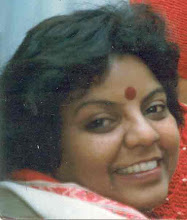


In Kumar Vikal's city
Pictures of Palkhu Nala, Guru da Kotha and Hafiz Khilji by Wazirabadi Akram Varraich
On a visit to Pakistan, Nirupama Dutt is impressed by the effort to maintain the composite culture at Wazirabad
AN hour and a half drive from Lahore reaches us to Wazirabad, a city on the banks of the Chenab River where the picturesque Palkhu Nala, a snow stream from the Himalayas joins the big river. It is Id-ul-Zuha and we are to spend it in the home of an artist couple Huma Safdar and Akram Varraich. The first thing that strikes us as yet another Wazirabadi, Sharjeel Anzar, drives us into the old city, is a beautiful old building. We are told that it is an old dak chowki (mail station) built by Sher Shah Suri in 1542 A.D. "It has now been declared a protected monument and the Department of Planning is going to restore it," Anzar tells us.
The day and a half that we spend in this city bring us to many monuments, stories and memories. Old cities have a way with them. Their past is always encased in their present. So it is with Wazirabad, a city that was founded in 1645 AD by Wazir Hakim Illmmudiddin, an amir of Shah Jahan. The town saw a decline in its population at the beginning of the Sikh rule but Sardar Gurbaksh Singh Varraich and his son Jodh Singh restored its glory. During the rule of Maharja Ranjit Singh, General Avitabile was appointed as the nazim of the city. He beautified it and added new structures.
Our enthusiastic hosts after filling our stomachs with choicest of mutton delicacies take us for rounds of old Hindu and Sikh monuments. The most impressive monument is a forlorn gurdwara known as Guru da Kotha. Ranjit Singh ordered the construction of this building in memory of Guru Har Gobind, the sixth of the Sikh Gurus(1595-1640), for he stayed at Wazirabad during his long travels preaching through Punjab and Kashmir. The spherical, segmented dome of the Guru da Kotha rises in splendour above the skyline of the city and is balanced off by four domes at the corners. The old brick structure is very attractive but as one comes closer, the building is decaying. Akram Varaich tells us, "At one time it was the centre for a large annual congregation. But now it stands as a forgotten monument. People have added rooms to it. We wish to preserve these buildings for these represent the common culture of united Punjab."
We are also taken to the old Hindu mohallas including the big haveli of Diwan Badri Das and a Shish Mahal. The residents of the city, proud of their heritage, founded the Apna Wazirabad Bachao society some three years ago. The society has video and book library in the heart of the city as well as a gallery and an auditorium. Hanging proudly among the photographs of famous writers is a portrait of the celebrated writer of Urdu, Krishan Chander. The next addition is to be a portrait of our very own Kumar Vikal, who spent the last three decades of his life in Chandigarh and is remembered as poet of the city, was also born at Wazirabad. Anzar who is the moving spirit behind Wazirabad Bachao, says: "Multi-religious and multi-ethnic societies of Punjab gave the land its colourful culture. All that has been lost in the monopoly settlement. Our effort is at least to document the monuments that still exist in photographs and videos."
We also visit the ancient Shamshan mandir and the mandir in the bazar. The bazar has pictures of Indian film stars like Aishwarya Rai, Kajol and Madhuri Dixit displayed in all splendour. Indian TV soaps are very popular here. A resident tells us that the train used to go all the way to Jammu before the Partition but now it terminates at Sialkot. The city has two artists, painter Akram Varraich and wood sculptor Shaadi Khan. Both have recurring images of the temples and gurdwaras. "It is our way of making amends for those who had to leave their homes. At least, composite culture should be present in art." And they hope that life may imitate art for once.
HAFEEZ KHILJI is a Wazirabadi political activist.Since he does not believe in compromises, he offered resistance and saved the temple in Wazirabad when mobs of the Jamait-e-Islami came to demolish it. This was the period after the demolition of the Babri Masjid here at Ayodhaya. "Hundreds of temples were demolished all over Pakistan but not in our city," the Wazirabadis tell us proudly. Khilji stood outside the temple with a stick in hand and told the mobs, "I will break the legs of any man who tries to come here to destroy the temple."The mobs retreated because they knew that Khilji has the support of the whole city. Chairman of the Union Council and the first man from the lower middle class to have been elected to the post. He defeated the candidate of the aristocracy by a large margin. He belongs to Bhutto’s People’s Party but is critical of the compromises made by Benazir Bhutto.
Khilji writes some poetry, sings very well and reads the poetry of Sufi poet Mohammad Mir. We could do with more political activists of his breed. The last memory of Wazirabad is listening to a song by West Punjabi progressive poet Najm Syed Husain on the banks of the Chenab river.
April 11, 2004, The Sunday Tribune

1 comment:
Lyrics Hindi Movies
Akkad Bakkad Lyrics
Post a Comment